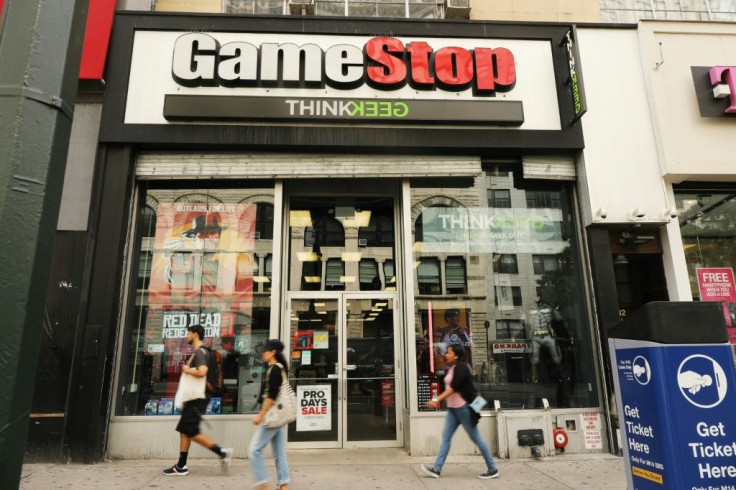GameStop Stock: Analysts Discuss Why Shares Have Surged
Contagion, and chatter on various social media channels, may help explain why GameStop is the stock du jour, rallying some 300% since the start of the year.
Shares of GameStop (GME) were trading up by double-digits early in the Monday session. So choppy was the trading that it triggered a mechanism that halts trading at times when a stock experiences wild swings in a matter of minutes. It was trading around $70 per share as of 1 p.m. ET.
Shares of GameStop opened at $17.34 on Jan. 6.
"It's just another reflection of the ebullient mood," Peter Boockvar, chief investment officer at Bleakley Advisory Group, said Monday on CNBC.
Stock indices in general have been on the rise during much of the pandemic. The tech-heavy NASDAQ finished 2020 with a gain of roughly 43%.
On social media, the day-trading community pushed hard on the GameStop accelerator, fueling the buying frenzy.
On a thread on Reddit, one user said he’s holding on to his shares until it hits at least $1,000. Another person suggested they paid off their entire student loan debt of some $23,000 by trading in GameStop shares.
GameStop shares, however, are widely overvalued. When it was flirting with $100 early in the session, that was some 80% above what the average forecasts compiled by the Bloomberg news agency suggested as a fair price.
GameStop shares came under pressure last week after one investor, Andrew Left at Citron Research, provided details on why the stock was overvalued. Facing furor from the day-trading community online, however, Left said he could no longer comment on his position because Citron has become a target of "an angry mob who owns this stock."
“It doesn’t make business sense,” Doug Clinton, co-founder of Loup Ventures, told Bloomberg. “It makes sense from an investor psychology standpoint. I think there’s a tendency where there is heavy retail interest for those types of traders [day traders] to think about stocks differently than institutional investors in terms of what they’re willing to pay.”
The type of trade driving GameStop shares, called “shorting,” itself may be a bit risky. Short-sellers borrow shares they see as overpriced and then sell them in the hope of buying them back cheaper a bit later and pocketing the difference. They lose money if they bet wrong.
The work-from-home culture during the pandemic may also be fueling the rally to some extent. For the nine-week period ending Jan. 2, GameStop reported a 4.8% increase in-store sales relative to last year, but a 309% increase in e-commerce sales. Those sales were supported by coveted gaming consoles such as the Nintendo Switch and PlayStation 5.

© Copyright IBTimes 2024. All rights reserved.





















